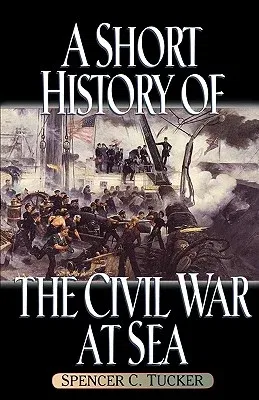While fighting on land continues to hold center stage, recently much
more attention has been focused on the Civil War at sea. And for good
reason. Naval operations decided the outcome of the war as the North
exploited its significant naval and maritime advantage to turn the war
on land in its favor. In A Short History of the Civil War at Sea,
Spencer C. Tucker, eminent naval and military historian and endowed
chair at the Virginia Military Institute, provides a concise and lively
overview of the "blue water" Civil War, or fighting on the seas and
attacks directed from the sea. This volume covers the drama of
significant naval battles, like the first clash of ironclads at Hampton
Roads, the Union capture of New Orleans, fierce action in the Charleston
Harbor, and the Battle of Mobile Bay. A Short History of the Civil War
at Sea also discusses important themes, like the technological
revolution in naval warfare; the impact of naval operations on U.S. and
Confederate foreign relations; the Confederate use of torpedoes,
submarines, and commerce raiders; and the Union's successful strategy of
blockade. The struggle at sea might not have been as bloody as the
fighting on land, but it was every bit as interesting and included a
colorful cast of characters, like David G. Farragut, the North's highest
ranking and most accomplished naval officer, and Confederate naval
officer, commerce raider, and "Rebel Seadog" Raphael Semmes. And the
advances of naval technology during the Civil War are fascinating-from
the use of new Dahlgren guns to the design and redesign of the ironclads
to the extensive use of mines and the development of submarines. Prof.
Tucker covers it all in this new book, and his knowledge and skills as a
storyteller shine. A Short History of the Civil War at Sea will
entertain and inform students, scholars, and Civil War enthusiasts.


